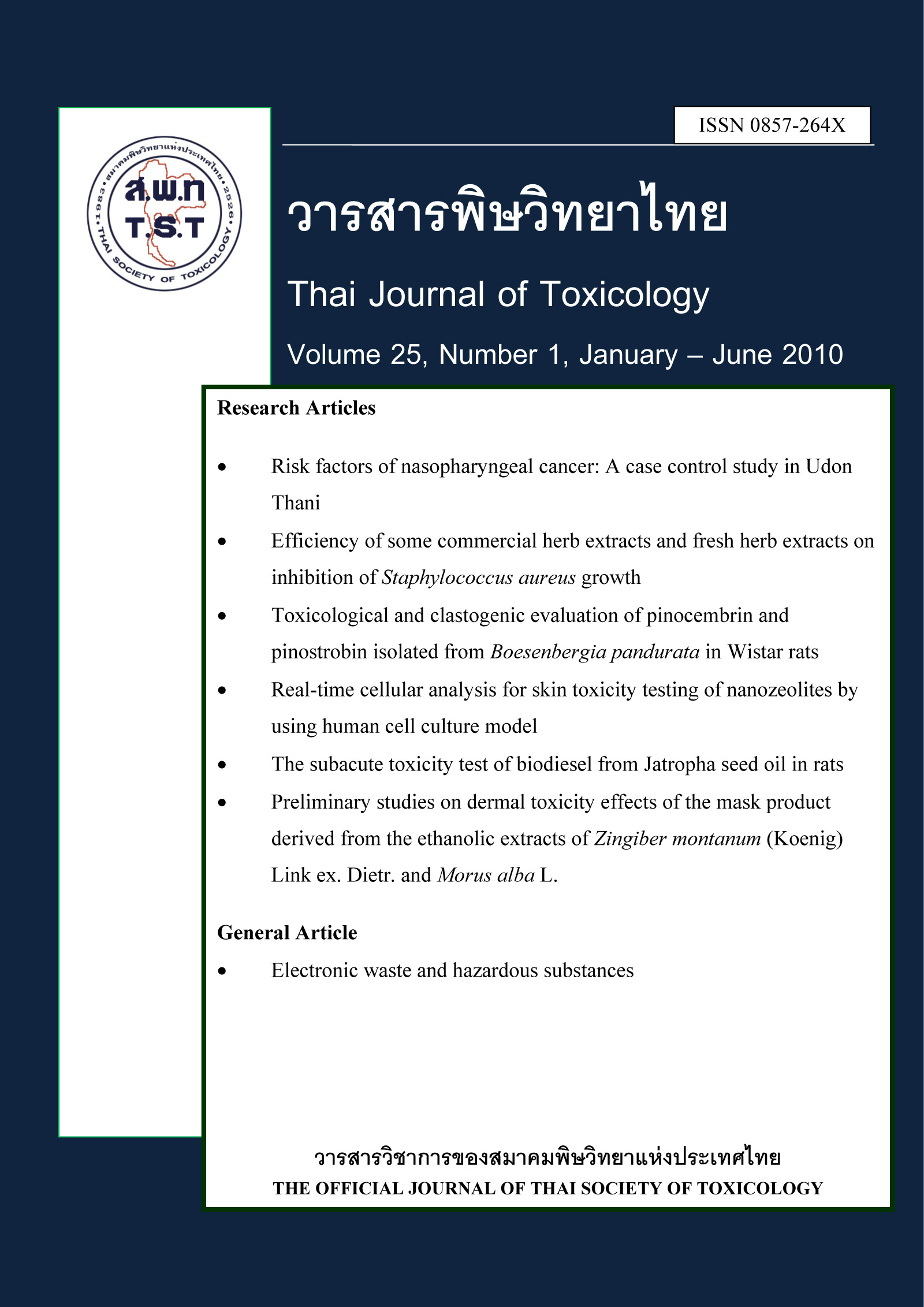Preliminary studies on dermal toxicity effects of the mask product derived from the ethanolic extracts of Zingiber montanum (Koenig) Link ex. Dietr. and Morus alba L.
Main Article Content
Abstract
According to the Thai tradition medicine, the rhizome of Zingiber montanum (Koenig) Link ex. Dietr. (Syn. Z. cassumunar Roxb; in Thai “Phlai”; Fam. Zingiberaceae) has been therapeutically used as anti-inflammatory, analgesic drugs etc. Also Mulberry (Morus alba L.; in Thai “Mon”; Fam. Moraceae) leaves which are widely used in an oriental medicine, has been scientically proved as antioxidant, melanocyte inhibition and whitening agent. In this research, both of the ethanolic extracts of Phlai rhizome and mulberry leaves are active ingredients for the Mask Product (PM) which is proposed to be used as skin care commodity. The objective of this study was to estimate and establish dermal toxicity effects of PM in animal models. The skin irritation, acute dermal toxicity and skin sensitization studied were conducted by following the Test Guidelines No. 404; Acute Dermal Irritation / Corrosion, No. 402; Acute Dermal Toxicity Test and No. 406; Skin Sensitization of the OECD Guidelines for testing of chemical, in the rabbits, rats and guinea pigs, respectively. From the results, we concluded that the PM might cause mild skin irritation in rabbits but did not produce skin sensitization (Buehler method) in guinea pigs. The dermal LD50 of the PM in Wistar rats was more than 2,000 mg/kg body weight.


